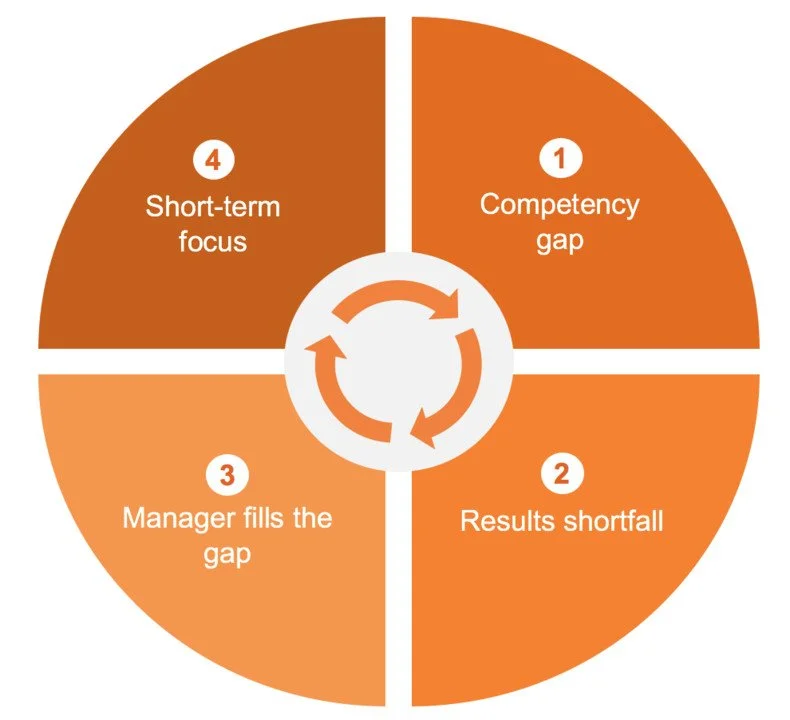Are you caught in the manager "Cycle of Despair"?
Somewhere in the first 12-18 months as a new sales manager, every manager will have a week or month or quarter in the cycle of despair.
And for many managers, it lasts much longer and can seem never-ending. Most sales managers find the management role to be very different than they expected, requiring a completely different set of skills and practices than selling. This learning curve often leads to a cycle that look like this:
Their sales reps have competency gaps
Leading to a potential results shortfall
Manager jumps in to fill the gap
Manager is pulled into a constant focus on short-term results – with no time to coach
If you are fortunate enough to have a team of experienced, high-performing sellers, you may avoid this (and your role may actually be unnecessary!). But most sales leaders have reps that need development. The challenge is developing rep skills while winning critical business – the proverbial “fixing the engine while driving 60 (or 90!) miles an hour”.
This is hard for most sales leaders. In fact, many managers contribute to this cycle, because it allows them to work in their comfort zone, applying their proven selling skills. They get to fly in at the last minute on critical meetings and deals, avert the crisis, be the hero, and feel the adrenaline rush. Even managers that are trying to avoid this situation still get pulled into it and find it very difficult to dis-entangle themselves.
Breaking the cycle requires focus and effort, plus a methodology and support. To break the cycle, managers need:
A coaching model that teaches how to build coaching into everyday selling activities.
A clear definition of success with guidance on how to improve sales rep competency levels.
Expectations for the manager role which prioritizes and measures coaching, to ensure the management team is rewarded for spending time developing their team.
Breaking this cycle is not a “nice to have”. If managers are filling the gap themselves, rather than building their rep’s competencies, they will be a bottleneck, limiting overall growth. And reps will realize they need to look elsewhere for career development, leading to higher attrition. This further perpetuates the cycle as new reps are then hired, with even great competency gaps.
I'm curious: have you been caught in the cycle? Observed other managers struggling with it? What were the results? How have you seen it broken?

